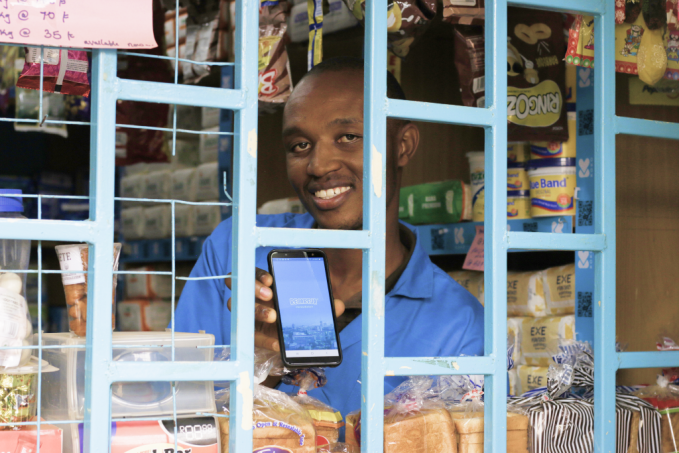An estimated one billion people worldwide face the challenge of proving who they are, according to a World Bank Group report which states that 81% of this number live in sub-Saharan Africa and South Asia without official proof of identity.
It’s no news that Africans spend an inordinate amount of time trying to prove or verify their identities to gain access to address proofs, financial accounts, loans, SIM cards, and social services. Per reports, an estimated 500 million Africans have no formal identification at all.
There’s a dearth of services tackling this challenge but the few that exist are employing artificial intelligence for more dependable processes. Smile Identity is one of such. The company provides ID verification and KYC compliance for African faces and identities. Today, the company is announcing that it has closed a $7 million Series A funding.
Costanoa Ventures co-led the investment with pan-African venture firm CRE Venture Capital. Other investors that participated include VCs like LocalGlobe, Intercept Ventures, Future Africa and unnamed angel investors. Existing investors, including Khosla Impact, ValueStream Ventures, Beta Ventures, 500 Startups, and Story Ventures, also participated.
Mark Straub founded Smile Identity with William Bares in 2017. As an investor, Straub took regular trips between Mumbai and Nairobi, spending up to a decade in the former. In the early 2000s, it was incredibly frustrating to get SIM cards or provide identity checks in India. But things began to change in 2009 when the India Stack was set in motion. The stack is a unified software platform via APIs that provide governments, businesses, startups, and developers with seamless identification, verification and authentication processes across multiple industries.
“People could easily do things like KYC to sign a document digitally, to share or federate documents across a company or school, to prove a birth certificate, or to prove an educational credential,” he said to TechCrunch. “It really unleashed this wave of innovation, entrepreneurship activity and fundamentally changed financial services and eventually share economy services in India.”
While India greatly advanced with this effort, Africa has largely played catch up. Most businesses on the continent still find it daunting to onboard new customers, salespeople or employees without spending lots of time and energy on people, processes and paperwork.
“I’d seen for 10 or 15 years how long Indians had been waiting and how many problems this set of new national ID combined with these different software protocols solved. I saw how much friction the Stack removed from people’s lives. And I thought if only there was an Africa stack.”
Straub said he began brainstorming with some entrepreneurs in Nairobi and figured that if an African Stack was to be built, three factors needed to come into play — cost, government independence, and spot-on technology. It also happened that at that time, open-source face recognition algorithms on a wide range of smartphones had flooded the market and advanced the state of verification dramatically.
Leveraging camera technology, Straub and his partners started Smile Identity and developed de-biased face recognition that was ultimately more accurate for Africans than the base level open-source algorithms published in U.S. colleges.
“We were able to combine that over time by matching selfies against either identity documents or photos on file at ID issuing authorities. And it was really the combination of those two technologies — the face recognition and all the lightness checks and, and anti-fraud checks that go with it, combined with verifying for the source of truth.”
Four years on, Smile Identity is now present across six markets in Africa: Nigeria, Kenya, South Africa, Ghana, Rwanda, and Uganda. It also enables 15 different ID types and covers more than 250 million identities, performing over one million identity checks every month.
Its software is used in banking, fintech, ride-sharing, worker verification, public social welfare programs, and telecommunications. Smile Identity says it has about 80 customers who are charged on a per-query basis. Some include payments companies like Paystack, Paga, and Chipper Cash; neo-banks like Kuda and Umba; traditional banks like Stanbic IBTC; cryptocurrency exchanges like Binance, Luno, and Paxful; and supply-chain businesses like Twiga.
Finding product-market fit took a while for Smile Identity at first. There was little or no playbook to follow, so the company had to figure out the right mixture of features and pricing favourable for African markets, smartphones and the internet.
“We have had to build SDKs and mobile wrappers that work for Android and iOS but also things like React Native and Flutter and make them work on mobile web browsers. Almost every one of these solutions we came up with was because we hit some friction point with customers that forced us to innovate. A lot of those were either device issues that we ran into or low internet connection or low or no internet connection conditions.”
But with continuous iteration and working with different clients, Smile Identity is on track for another level of growth. In the past couple of months, there have been numerous talks on fintechs and regulatory requirements ranging from local data protection laws and consent requirements to privacy policies and data impact assessments. These requirements are hard to keep up with, and Straub says Smile Identity is working on templates its clients can use to navigate them.
“Right now, we’ve been building into our products and our services, some of these compliance measures. And that’s ongoing work, of course, as more and more of these requirements are put on companies.”
Straub believes that in many ways, Smile Identity is at an index of the growth of African fintech because of its bilateral usage. According to him, Smile Identity help fintechs spot good and potential bad users who might hurt their businesses in the future. “We are an accelerant of the growth of fintechs and shared economy companies because they know when they spend money on customers, those are real customers because they have actually done verification with us,” he said.
In 2019, Smile Identity secured a $4 million seed round. With this Series A, the company has raised a total of $11 million. Smile Identity plans to use the new investment to improve its services, expand across more markets, add support for more ID types and hire more engineers and support staff across Africa. That said, John Cowgill, a partner at Costanoa, will be joining Smile Identity’s board.







